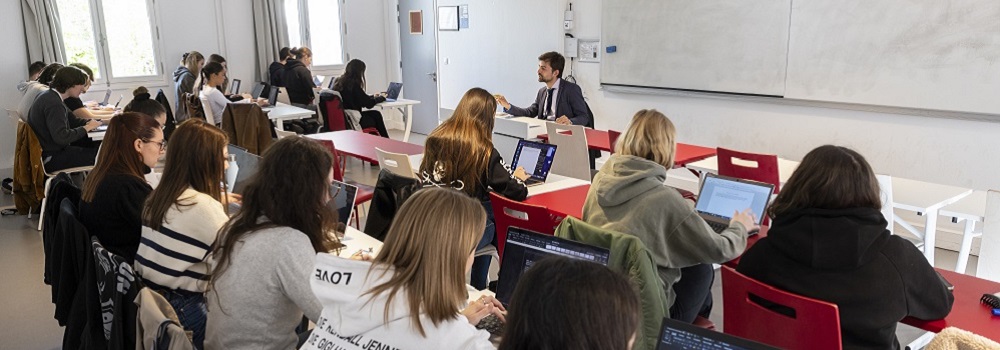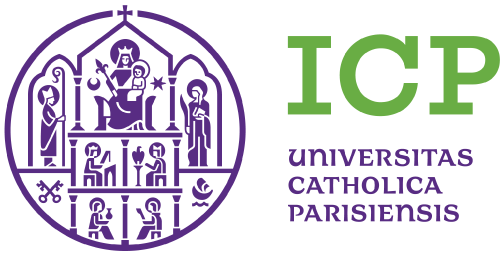Introduction
Understanding, preventing and resolving conflicts have perhaps never been more important priorities on the global agenda. This course introduces students to the interdisciplinary and complex field of conflict analysis and crisis management in international relations. After a brief overview of the history and evolution of the discipline, we will examine and study the subject both from theoretical and practical perspectives, with a clear focus on understanding contemporary deadly conflict.
The course will be constructed as follows: the first part of CM courses (2 sessions) will discuss concepts, theories (mainstream as well as critical approaches) and methods of conflict analysis.
Main topics of conflcit analysis will cover the types, costs and curve of conflict; the causes of conflict examined from different dynamics; risk assessment and early warning; conflict assessment frameworks such as narrative analysis, conflcit mapping and scenario analysis and the key theories and frameworks such as realism, liberalism and alternative theories.
The second part (3 sessions) will tackle strategies and tools of crisis management. The principal subject to be discussed under crisis management include international negotitation, mediation and nonviolent resistance; peacekeeping and peacebuilding; reconciliation and forgiveness; postwar reconstruction (including a brief overview of the UN’s sustainable development goals as well as the importance of the so-called ’acquis cosmopolitain’). Throughout the entire course students will explore relevant examples and case studies that illustrate the dynamics of conflict escalation and de-escalation.
During the TD sessions students will present and discuss case studies using different theoretical frameworks, various analytical tools and mechanisms (including a comprehensive analysis of several contemporary conflicts), as well as tackle important cross-cutting themes in relation to conflict management, such as technology, gender, ethnicity, religion, migration and environment.
Objectives
Upon successful completion of this course students will be able to:
➢ Trace the historical development of the conflict analysis and resolution field;
➢ Critically examine the key concepts, theories and frameworks related to the field;
➢ Implement a range of conflict analysis tools;
➢ Examine how political, socioeconomic, cultural and other factors can contribute to the causes of conflicts and their resolution;
➢ Understand conflict dynamics and the processes of conflict escalation and de-escalation;
➢ Develop a comprehensive understanding of the mechanisms of international conflict management, including negotiation and mediation, as well as peacekeeping, peacebuilding and reconciliation;
➢ Explore cross-cutting themes in international conflict management such as technology, ethnicity, gender, migration and environment;
➢ Carry out a comprehensive conflict analysis and recommend conflict resolution interventions.
Course Outline
CM
1. Conflict analysis: Understanding deadly conflict, theories and frameworks
• a brief history of the field of conflict analysis and management
• types, costs and curve of conflict
• causes of conflict, escalation and de-escalation
• risk assessment and early warning (watch-lists and conflict metrics instruments)
• mainstream approaches (realism, liberalism)
• critical approaches (radicalism/neo-marxism, feminism, constructivism, state-centric approach)
2. Conflict analysis: Applying paradigms, conflict assessment concepts and tools
• illustration of paradigms (mainstream and critical approaches) through case studies
• gathering information and the four-step assessment process
• narrative analysis
• conflict mapping
• scenario analysis
3. Conflict and crisis management: Negotiation and mediation
• theoretical approaches to international negotiation: structural, strategic and cultural approach (including BATNA, win/lose, prisoner’s dilemma and chicken game)
• phases of the negotiation process: pre-negotiation, formula, details and ratification
• concepts of third-party interventions and third-party roles (coercive and non-coercive, Ury’s model, Lederach’s model, multitrack approach)
• regional mediators and international organizations
4. Conflict and crisis management: Non-violence, peacekeeping, peacebuilding
• history and role of civil resistance
• non-violence in power dynamics, principled and pragmatic approach
• containing and ending violent conflict, peace processes
• UN as peacekeeper and dilemmas of efficacy
• structural, liberal and hybrid peacebuilding
5. Conflict and crisis management: Postwar reconstruction and reconciliation
• postwar peace support operations and state-building missions
• postwar reconstruction matrix: from intervention to withdrawal
• linking reconciliation and forgiveness
• peace education and positive peace (global peace index)
• UN’s sustainable development goals (UN 2030 Agenda)
• ’acquis cosmopolitain’
TD
1. Key theories and frameworks
• Group presentations of case studies analyzed from different theoretical angles using mainstream and critical approaches
2. Comprehensive conflict analysis
• The Cyprus-conflict
3. Comprehensive conflict analysis
• The Israeli-Palestinian conflict
4. Comprehensive conflict analysis
• Russia-Ukraine war
5. Cross-cutting themes in international conflict management
• Group presentations on complex issues that are important in the current international climate (technology, gender, ethnicity, religion, migration and environment), using an interdisciplinary approach
6. Conflict resolution and the future
• Classroom discussion on the challenges and opportunities for international conflict management
Program
Assessment and Final Grade
Oral assessment:
• Two group presentations for 30% globally: one for 15% on a case study analysis and one for 15% on a cross-cutting theme analysis.
Written assessment:
• Final exam for 50%: short questions and one essay question (2h)
The final exam tests students on their knowledge and on their ability to apply their analytical skills to discuss international conflict theory and conflict resolution.
Class participation: for 20%. Active participation in discussions is required.
Absence Policy: Students are expected to attend all sessions. Non-excused absences will affect your participation grade. Excused absences fall into two categories: sickness or unforeseen emergency. When a student misses a class, responsibility for making up missed work rests solely on his or her shoulders.
Academic dishonesty: General principles of academic honesty include the concept of respect for the intellectual property of others, the expectation that individual work will be submitted unless otherwise allowed by an instructor, and the obligations both to protect one’s own academic work from misuse by others as well as to avoid using another’s work as one’s own. All students are expected to understand and abide by these principles.
Bibliography
1. Understanding International Conflict Management (2020) ed. by C. Butcher and M. C. Hallward, Routledge (manual: please order 4 or 5 copies)
2. Conflict Analysis : Understanding Causes, Unlocking Solutions (2013) by Matthew Levinger, United States Institute of Peace, Washington (manual: please order 4 or 5 copies)
3. Contemporary conflict resolution (Fifth edition, 2024) by O. Ramsbotham, T. Woodhouse, H. Mall, H. Toros, Polity Press (please order 1 or 2 copies to be used as reference if possible)
4. International organizations : Perspectives on governance in the twenty-first century (Sixth edition, 2018) by Kelly-Kate S. Pease, Routledge (please order 1 or 2 copies to be used as reference if possible)
(A list of further bibliography on each subject can be found in the manuals.)
NB: While this syllabus has been carefully constructed, your professor retains the right to make
changes to it as course progress warrants, and pledges to give students the new information in a
timely manner.
Students are prohibited from recording lectures or copying lecture materials and posting them
outside of class, on internet sites, or providing them to note sharing companies.


 Libraries
Libraries
 Practical information
Practical information
